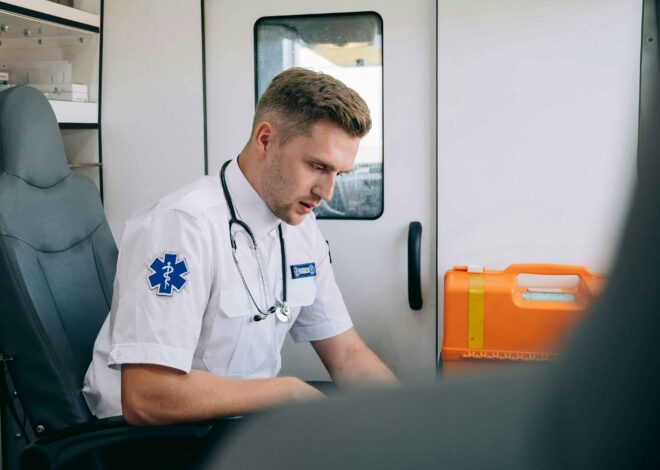
Can Recovering Addicts Become Nurses in Detox Facilities?
Can Recovering Addicts Become Nurses in Detox Facilities? The sphere of healthcare is gradually opening up for the utilization and integration of the participants’ lived experiences in the process of addiction management. Most recovering addicts brings great perception and understanding that can greatly improve the services offered to persons in detox centers. However, the process of becoming a nurse in such environments is not mechanically plain. With respect to job exposure, experience and qualifications, this article shall explore the prospective of using recovering addicts in detox centers and the challenges associated with the same.
Roles of Nurse in Detox Facilities:
Nurses on detox centers are very important in the rehabilitation process. Their responsibilities typically include:
- Assessment and Monitoring: Assessing the general health condition, together with diagnostics of heart rate and blood pressure, and detection of withdrawal signs.
- Administering Medications: Offering prescriptions to address withdrawal signs, and promote healing.
- Patient Education: Education related to substance dependency, substance dependency recovery process, and techniques for coping with it.
- Emotional Support: Taking time to care about patients and listen to them at their time of need.
- As a result of this, any nurse working in these detox facilities should ideally be very well informed on the subject of drug/ alcohol addition and treatment which makes the actual experiences of these recovering addicts even more important.

The Journey of Recovery:
The Role of Personal Experience: Substance dependent nurses who seek employment in detox units bring judgement to their practice into their arena. This is good because through their own experiences they have the potential to relate to the patients. Such a relation can create trust and friendly communication which are relevant for any treatment process.
In it the authors take a look at the importance of empathy and understanding when it comes to mental health disorders. Another aspect which establishes empiric evidence for the research hypothesis is the assertion that empathy is an important characteristic for nurses who practice in detox institutions. The patients are often recovering addicts which mean they are familiar with all the difficulties patients might have. This understanding can lead to:
More compassionate care:
A set of support strategies that can be explained, and have meaning, to the patient population.
A patient-centred model of care that, effectively, says little more than, ‘Well, you know, it’s up to you how you want to deal with it…’
Learning Requirements and Licensing:
To become a nurse, recovering addicts must meet specific educational and licensing requirements, which typically include:
Obtaining a Nursing Degree: They can be an ADN or a BSN depending on the patient’s condition as well as individual and organizational factors.
Passing the NCLEX-RN Exam: It is a legal necessity to pass this test in order to work as a registered nurse at a national level.
State Licensure: In order to practice, the nurses are required to get their license from the state they will be working in, this might involve the performance of criminal background check, and self-reporting of previous substance dependency.
As much as recovering addicts can pursue the above educational eclipses, they stand to experience lit challenges during the licensing process.

Difficulties Experiences for Nursing Students in Recovering from Addiction:
Stigma and Discrimination:
However, even with the emergence of recovery stories as more acceptable, those of addicts continue to come laden with stigma. Recovering addicts may encounter discrimination in the following ways:
Employment Opportunities: Due to tendencies of getting a relapse and the possibility of portraying low productivity at the workplace some employers avoid hiring such people.
Professional Relationships: People can bring into the workplace certain prejudices that can impact on group dynamics.
Legal and Ethical Considerations:
Recovering addicts must navigate legal and ethical considerations when pursuing a nursing career:
Disclosure Requirements: Some of the states have certain conditions that a nurse must report any history of substance use if they are to be licensed. This may result in other obstacles of acquiring a license.
Monitoring Programs: Some states currently offer employment for the nurses with substance use problems which can include requirements to report to the drug tests frequently.
Hiring Conferred Addicts in Nursing Professions:
Despite the challenges, there are numerous benefits to hiring recovering addicts as nurses in detox facilities:
Authentic Connection: It can give the professional a real sense of the patient’s experience that can build a positive dynamic.
Role Models: Professional caregivers, including nurses in recovery, can help restore hope in a patient as well as show the patient that they know others who have been through it and came out successful.
Enhanced Understanding of Treatment: Their insights can inform treatment approaches, making them more effective and relatable.

Support Systems and Resources:
Recovering addicts pursuing a nursing career can benefit from various support systems and resources:
- Peer Support Groups: Engaging with groups like Alcoholics Anonymous (AA) or Narcotics Anonymous (NA) can provide encouragement and accountability.
- Mentorship Programs: Connecting with experienced nurses who understand the challenges of recovery can offer guidance and support.
- Educational Resources: Many nursing schools offer resources specifically for students in recovery, including counseling services and academic support.
These resources can help recovering addicts navigate the complexities of pursuing a nursing career while maintaining their sobriety. You can contact us here.
8. Conclusion
Recovering addicts can indeed become nurses in detox facilities, bringing invaluable insights and empathy to their roles. While they may face challenges such as stigma, legal considerations, and the need for transparency regarding their past, the benefits of their lived experiences can significantly enhance patient care.
By fostering supportive environments and providing access to resources, the healthcare system can empower recovering individuals to contribute meaningfully to the field of nursing, ultimately benefiting both patients and the broader community. Embracing the potential of recovering addicts in nursing roles not only promotes inclusivity but also enriches the recovery journey for those they serve.


